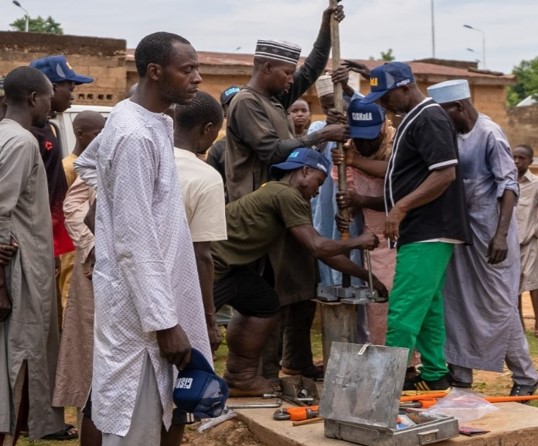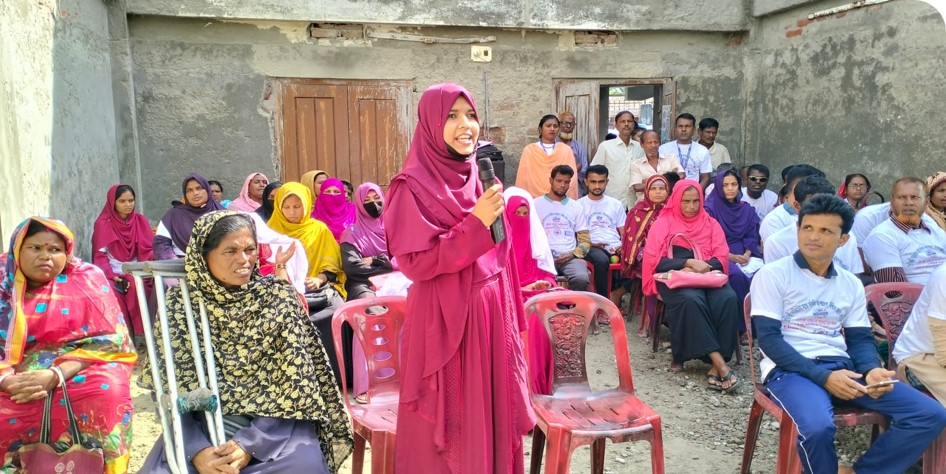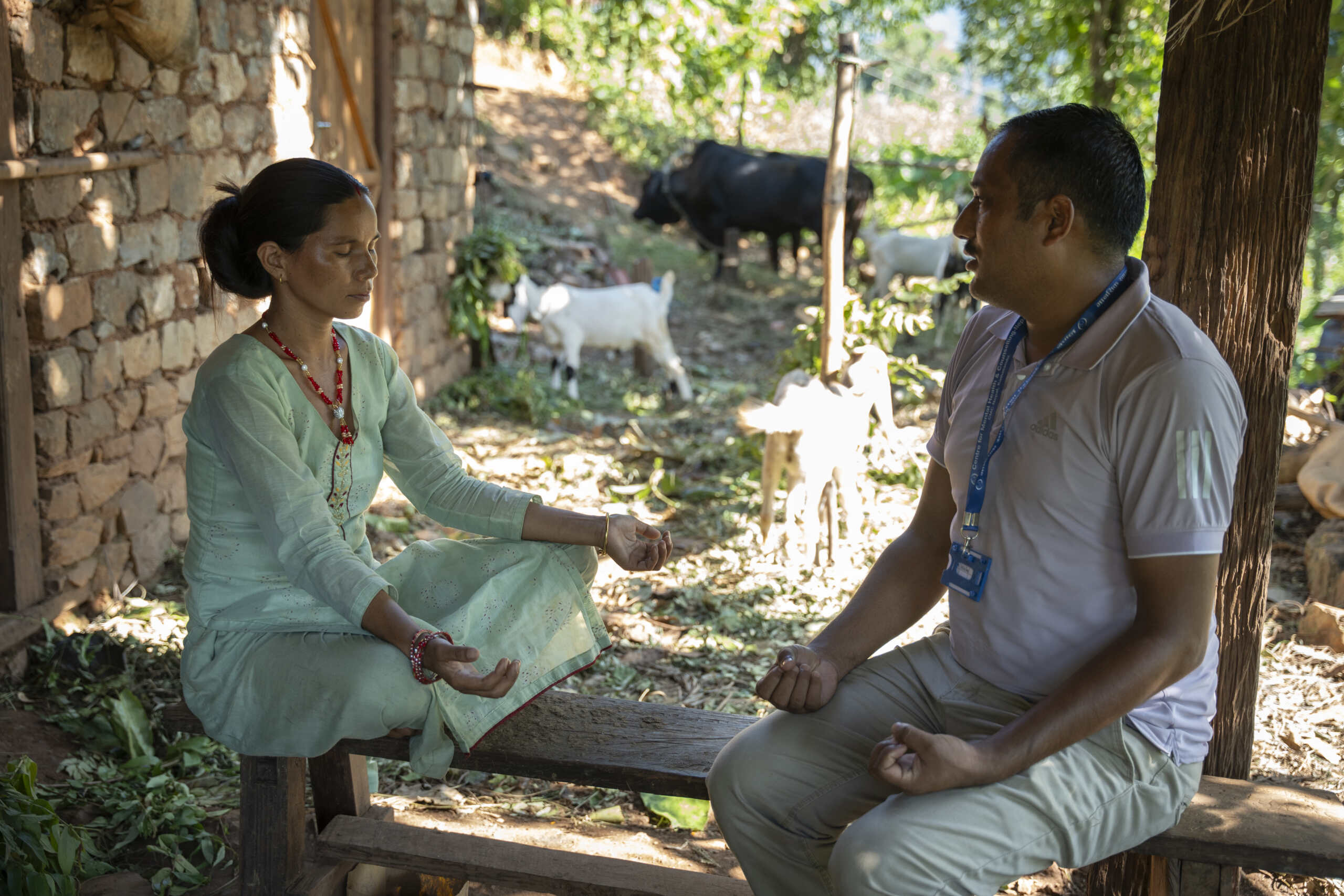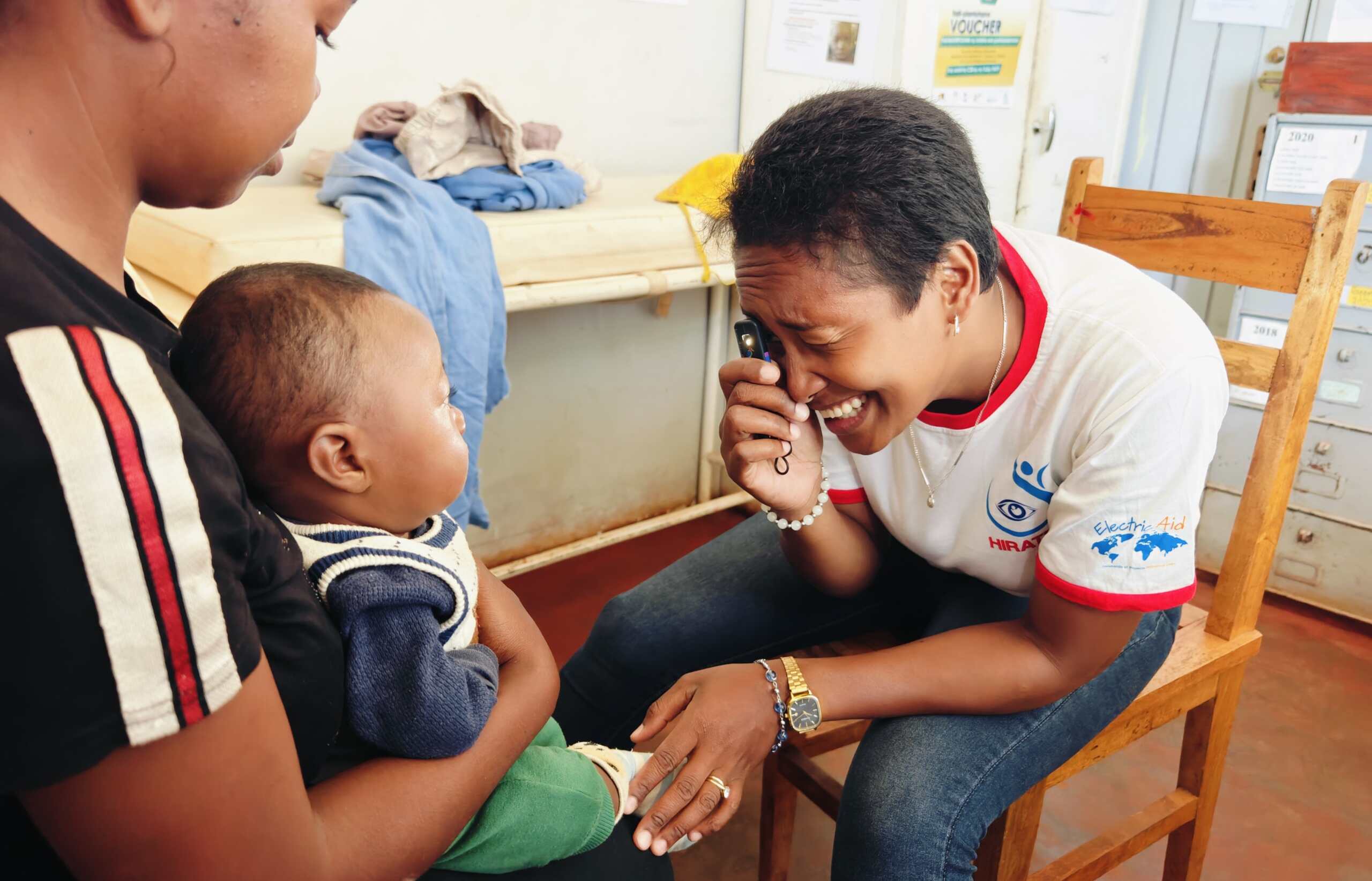Inclusive, holistic & person-centred: Our NTD work in Nigeria
News | January 30, 2024
Collaborating with our partner HANDS, we are actively engaged in Jigawa State, Nigeria, to address and eradicate Neglected Tropical Diseases (NTDs), such as Lymphatic Filariasis and River Blindness.

What are Lymphatic Filariasis and River Blindness?
Lymphatic filariasis stems from an infection caused by a parasitic worm transmitted by mosquitoes, resulting in damage to the immune system. This condition can lead to the swelling and enlargement of body parts (elephantiasis), causing pain, severe disability, and societal stigmatization. Fortunately, the severity and progression of the disease can be mitigated and even prevented through basic measures like hygiene, skin care, exercises, elevation of affected limbs, and surgery to alleviate severe symptoms.
Onchocerciasis, commonly known as River Blindness, is caused by a distinct parasitic worm spread by blackflies. It manifests in severe itching, disfiguring skin conditions, and visual impairment, including permanent blindness.
Inclusive, holistic, and person-centred response
Individuals with NTDs frequently encounter discrimination and a loss of income, impacting their mental health. Their ability to access essential services, such as water points, is often hindered by locations that are not disability inclusive. Consequently, many individuals with NTDs rely on family members for survival.
The groundbreaking initiative known as CiSKuLA, derived from the Hausa phrase ‘Cikkaken Shirin Kula da Lafiyar Al’umma,’ translating to “inclusive and holistic” care, is at the forefront of this endeavor. While typical NTD projects concentrate on mass drug distribution for those at risk of infection to prevent disease transmission, CiSKuLA takes a more comprehensive approach. It seamlessly integrates with an existing mass drug distribution program in the region, encompassing various essential elements of care. This includes accessible water, sanitation, and hygiene (WASH) activities, alongside inclusive healthcare, mental health support, and livelihood assistance for individuals afflicted by these incapacitating diseases.
Danny Haddad, Inclusive Eye Health and NTDs Director of CBM Global, says:
“At CBM Global, we are committed to supporting NTD programmes in regions where this is a public health challenge. Aligned with the World Health Organization’s NTD Roadmap 2021-2030, the Sustainable Development Goals (SDGs), and CBM Global’s vision, we strive for a holistic, person-centered approach that leaves no one behind.”
The CiSKuLA project is slated for implementation in Birnin Kudu, Jigawa State. For of two years, the project will encompass:
- Preventative treatments and surgeries
- Education on self-care and symptom management
- Training for frontline health workers and caregivers to identify and offer psychosocial support (with referrals to mental health services when necessary)
- Establishing inclusive WASH facilities, including the formation of WASH clubs in local schools
- Forming self-help groups for those impacted by NTDs
- Tackling stigma within local communities
- Fostering inclusive livelihoods, especially tailored for women and men with disabilities.
Renewed Hope:
Anas, a young man from Nigeria, tells his story of living with an NTD and the difference it has made to connect with CiSKuLA, our amazing project with partner HANDS.
Watch his story:
https://cbm-global.org/news/inclusive-holistic-person-centred-our-ntd-work-in-nigeria
Related News

Achieving resilience for all requires funding disability inclusion in DRR
On International Day for Disaster Risk Reduction (DRR) 2025,...

The Vital Role of Mental Health and Psychosocial Support in Humanitarian Emergencies
Why Mental Health Cannot Be Overlooked When disasters strike, whether...

Lighting the Path to Sight: How Early Eye Screening is Changing Children’s Futures in Madagascar
Every child deserves the right to sight In Madagascar, thousands...
